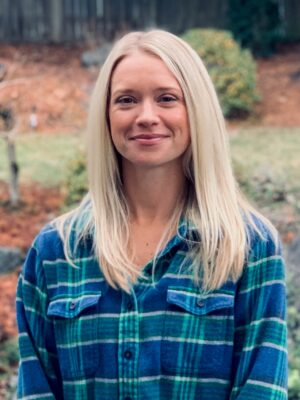We are back in action, here to kick off both the New Year and a new legislative session. The Legislature will convene for the regular 2025 legislative session on Monday, January 13 and is scheduled to end on April 27. The Washington State Legislature’s regular sessions run 105 days in odd numbered years, and 60 days in even numbered years. Longer sessions provide lawmakers with ample time to write their state’s two year budget, as well as submit hundreds of bills to be considered by their peers.
Washington State is a bicameral body, composed of the lower Washington House of Representatives with 98 representatives, and the upper Washington State Senate with 49 senators. Currently, the Democratic Party holds a trifecta in the legislature, meaning the Democratic Party controls the office of governor and both chambers of the state legislature. For those who are interested in really getting into the nitty-gritty of the regular (long) session and understanding the process that bills go through before they are signed into law by our state’s governor, this article from the Washington State Standard, is a good resource.
Earlier in December, the outgoing Governor, Jay Inslee, released his proposed balanced budget for 2025-27. Inslee’s proposal highlights programs and services that include public safety, education, early learning, housing and behavioral health. His proposal provides K-12 education with an additional $1.3 billion for schools to support increased costs for maintenance, supplies, technology and educator compensation.
Inslee’s proposed spending plan also includes some cuts and reductions. KUOW reported that, “His proposal would pause pay bonuses for teachers who receive their National Board Certification and eliminate or reduce some education grant funding that officials say is ‘underutilized’ — including a program for training paraeducators.” Governor Inslee is serving his last term in office and Governor-elect, Bob Ferguson, will begin his term as Washington State’s 23rd governor on January 15. In late September, Washington State’s Superintendent, Chris Reykdal, gave a press conference highlighting his goals for the upcoming legislative cycle, as well as submitted his K-12 Operating budget requests to the governor. Reykdal emphasized the need for increased funding in the areas of special education, student transportation and high poverty schools. “Budget writers must recognize that schools today are expected to do everything from feeding and educating students, to supporting, protecting, and nurturing their developmental, physical, and mental health,” Reykdal stated.
Pre-Filed Bills
HB 1021: which works to promote educational stability for children of military families.
HB 1031: which aims to mitigate the impact of rising school facility temperatures resulting from climate change.
HB 1032: which concerns school district elections.
HB 1051: which would permit the recording of individualized education program team meetings.
HB 1079: which supports remote testing options for students enrolled in online school programs.
HB 1085: which aims to improve school safety by extending penalties for interference by, or intimidation by threat of, force or violence at schools and extracurricular activities and requiring schools to notify the public of such penalties.
HB 1122: which would determine restrictions on mobile device usage by public school students.
HB 1134: which would promote resource conservation practices in public schools.
HB 1151: which would establish the ninth grade success grant program.
HB 1189: which aims to address parental involvement through volunteering in schools after a criminal conviction.
SB 5004: which would update emergency response systems in public schools including panic or alert buttons.
SB 5007: which would support students who are chronically absent and at risk for not graduating high school.
SB 5008: which would support the use of assessment, diagnostic, and learning tools in public schools.
SB 5009: which modifies the student transportation allocation to accommodate multiple vehicle types for transporting students.
SB 5012: which concerns the organization of interscholastic athletics.
SB 5025: which concerns educational interpreters.
SB 5030: which expands access to educational services by reducing barriers to obtaining vital records and allowing alternative forms of documentation.
SB 5080: which would make financial education instruction a graduation requirement.
SB 5097: which relates to school boards and ensuring the competitiveness in girls’ interscholastic athletic activities.
SB 5113: which concerns the cost-of-living adjustments for plan 1 retirees of the teachers’ retirement system and public employees’ retirement system.
SB 5123: which would expand protections for LGBTQ+ students to promote inclusivity in public schools.
SB 5126: which would establish a statewide network for student mental and behavioral health.
SB 5134: which would require public schools to commemorate the contributions of Chinese Americans and Americans of Chinese descent.
SB 5135: which concerns school districts’ authority to establish their curriculum.
SB 5136: which aims to protect the rights of parents and guardians by using students’ given names in public schools.SB 5137: which requires parental or legal guardian approval before a child participates in comprehensive sexual health education.
Odds and Ends
Is it time to appoint Washington States’ school chief? From the Washington State Standard, Ferguson and GOP Leaders See Value in Eliminating WA’s Elected Schools Chief. From the Seattle Times’ Education Lab, Washington Needs More Early Childhood Educators. But the Pay is the Problem.
From the Seattle Times’ Education Lab, Washington Needs More Early Childhood Educators. But the Pay is the Problem.
Meet CSTP’s Legislative Update Coordinator Samantha Miller

Samantha Miller returns as CSTP’s Legislative Updates Coordinator for the 2024 legislative session. She writes weekly emails during the legislative session focusing on bills that impact Washington educators.
Samantha has degrees in both Political Science and History, as well as a Master in Teaching. Samantha has worked in Elementary Education for 6 years, most recently as a 3rd Grade general education teacher. The majority of her time is spent chasing around her two children who keep her very busy. Samantha enjoys running, working in her yard, listening to political podcasts, and spending time with her family.